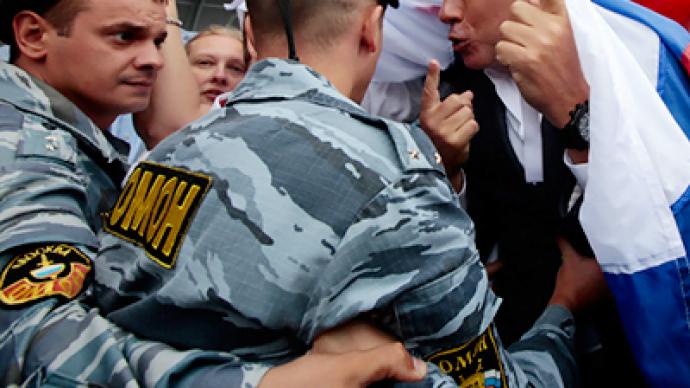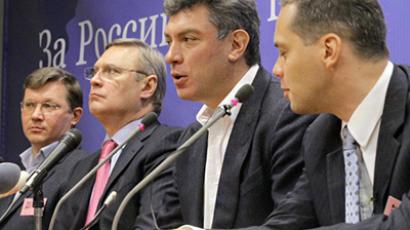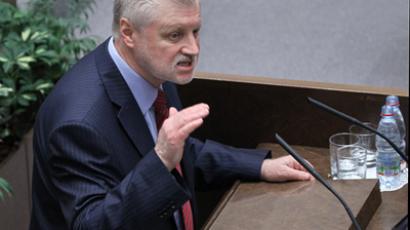Opposition calls for protest vote

Several unregistered opposition parties are calling on voters to boycott the forthcoming parliamentary elections this December. The idea has been supported by extreme left organizations, football fans and some NGOs.
The boycott is supposed to be “active”. By simply ignoring the election, protestors will not achieve any significant results since under current law, there is no voter turnout threshold for the election to be recognized as valid. Instead, the unregistered parties behind the “boycott campaign” – The Other Russia, The Motherland or Common Sense party, the ROT Front, and the People’s Freedom Party (Parnas), among others – suggest using a wide range of techniques. As Kommersant daily reports, the simplest one is to take the ballot home. One of the leaders of the Solidarnost (Solidarity) movement, Ilya Yashin, proposed to “spoil” ballots by making them invalid, for example, by ticking two or more parties on the election list. There are also more complicated means at their disposal. One can submit a request to the local election commission to be excluded from the list of registered voters. Another option is to ask for an absentee ballot in advance and not turn up on election day.Earlier, anti-corruption campaigner Aleksey Navalny suggested “decreasing the real support of United Russia” by voting for any other party. The“against all”option was removed from the ballot prior to the 2007 parliamentary elections following a Constitutional Court decision which ruled it was in violation of the constitution. Experts say that this time, a boycott might be conducted on a larger scale than it was four years ago. Indeed, the All-Russia Public Opinion Study Center (VTSIOM) has recorded the discontent from middle –class groups as it concerns social and economic policies. At the same time, sociologists note that protest-sentiment is generally low among the population. On Wednesday, VTSIOM released the results of an opinion poll which showed that 49% of respondents would be prepared to vote for the majority United Russia party if elections were held today. 12% would cast their votes for the Communists, 7% for the Liberal Democrats and 5% for the left-center Fair Russia party. All these parties are currently represented in the State Duma. Only 1% would vote for non-Duma parties, including Right Cause, which is now headed by billionaire Mikhail Prokhorov, who announced his ambitious plan not only to lead it to the parliament, but to make it the second largest party on the Russian political scene. Still, it should be noted, United Russia has enough to worry about in the run up to the election. Subsequently, the creation of the Popular Front, which was done on Prime Minister Vladimir Putin’s initiative, has been considered a means to regain lost ground. The party makes no secret of this fact. United Russia does take seriously the risk of a mass protest vote, though the chances of it happening are quite low. Nevertheless, the Central Election Commission prefers not to ignore potential “protestors”. At the beginning of July, the head of the CEC, Vladimir Churov, had an unofficial meeting with the leaders of several football fan clubs. They reportedly discussed means of cooperating with United Russia during their election campaign.














